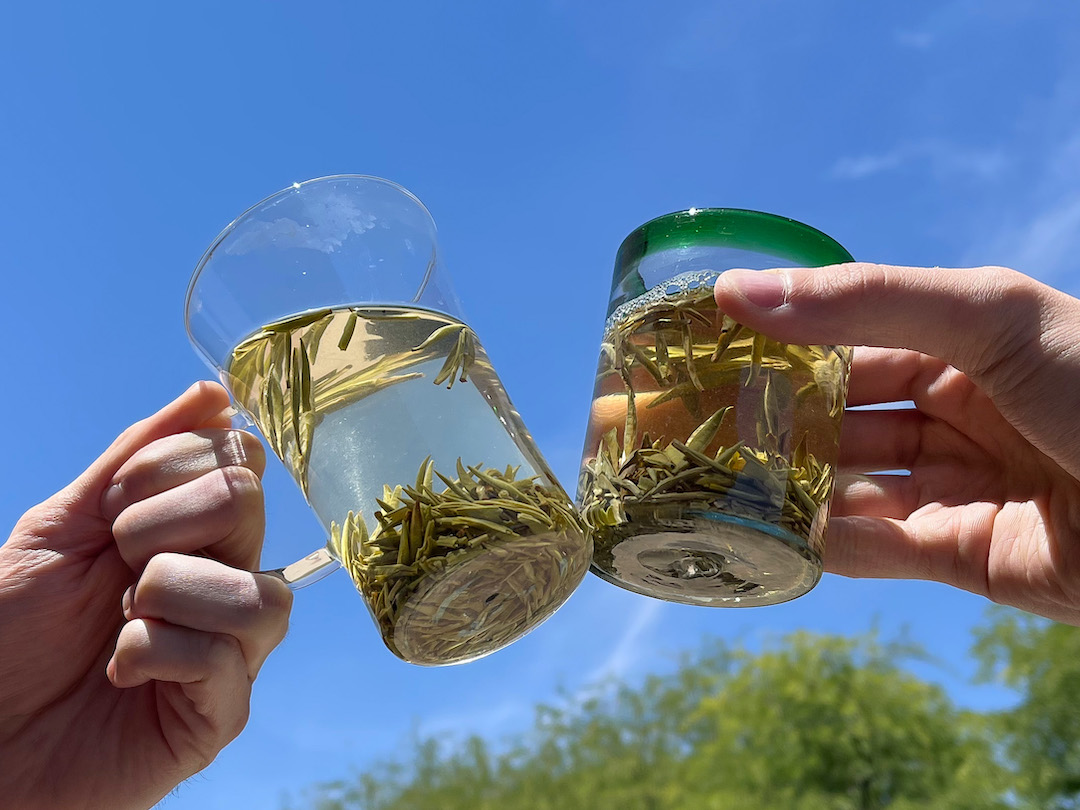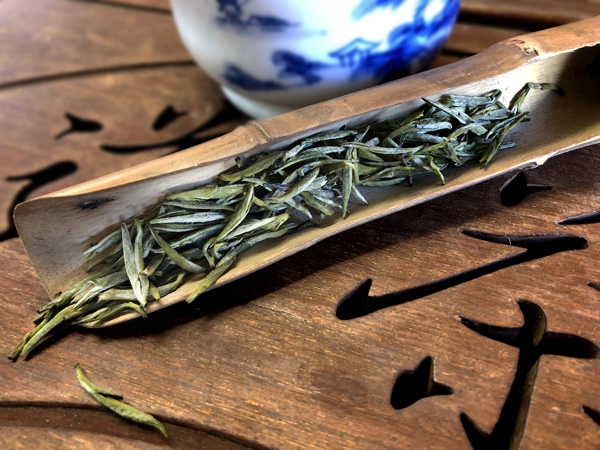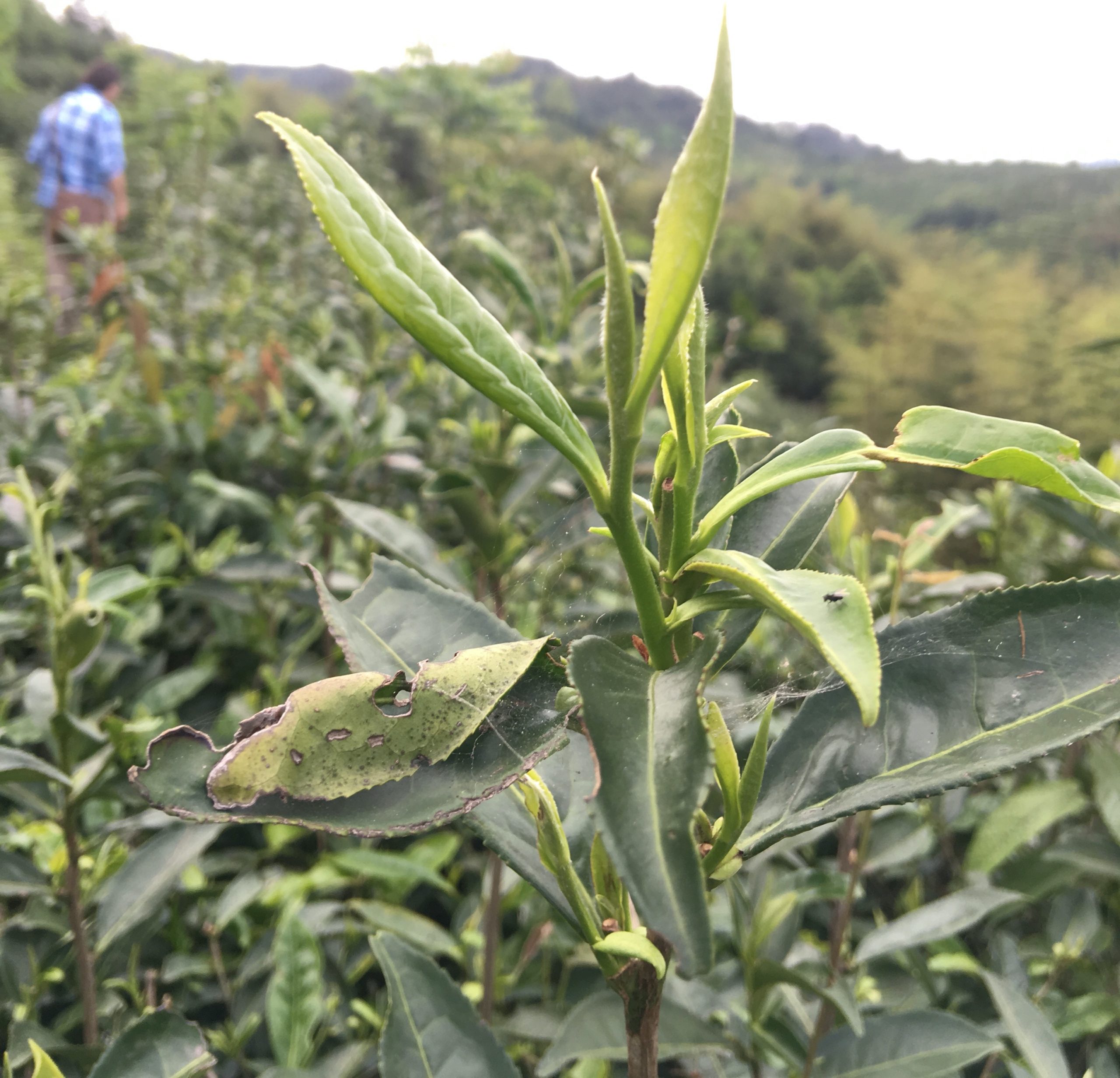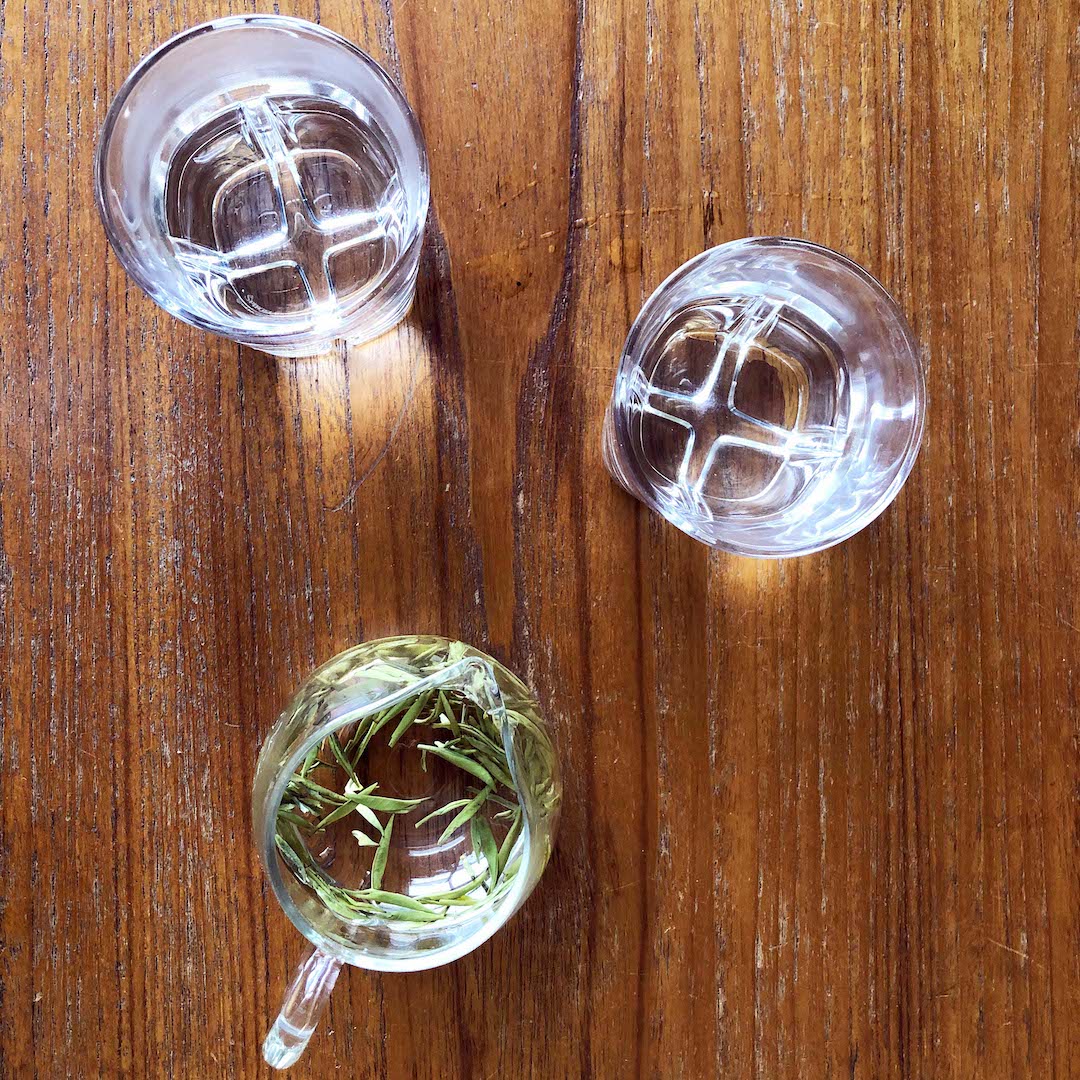Newsletter Archive May 13, 2022

This weekend you can try the fresh 2022 harvests of the extraordinarily rare Junshan Yinzhen yellow tea and the widely popular Baihao Yinzhen “Silver Needle” white tea.
If you love these teas or are curious to try at the peak of their aroma, now is your time.
Both are plucked just one bud at a time and share the “yinzhen” name, but that’s where their overlap ends. There’s a massive difference between their flavors, their origins, and their processing.

Junshan Yinzhen is the product of Junshan island, a patch of rock and forest in Dongting Lake, fed by the waters of the Yangzi River. The tea bushes here are a multitude of local heirlooms, many of them originally brought to the island to form a research garden. It’s specifically the buds from these bushes of this small origin, irreplicable and finite, that make up authentic Junshan Yinzhen.
And that’s to say nothing of the 72 hours of continuous work it takes to process this tea. The lineage of expertise that’s alive in Junshan Yinzhen yellow tea makers is well known. It is a wellspring of knowledge that other yellow tea styles have drawn from as they’ve revived their own traditions or invented new ones. Without question, Junshan Yinzhen is the paragon of the yellow tea style.
Its flavor? Sweet corn, sugar cane, spring vegetables, buttercup – all holy vespers of the real deal, subtle and vast.

Baihao Yinzhen “Silver Needle” white tea originates roughly 500 miles southeast of Junshan Island in the hilly country of Fujian Province.
Although this tea is originally from Fujian, its popularity has lead to many “Silver Needle” white teas on the market. Their origins span the tea-growing world and their quality is similarly variable.
Seven Cups’ Baihao Yinzhen comes from Northern Fujian’s Shaowu County, on rolling hills 1,600 – 2,000 feet above sea level. Its buds come from the classic Fujian stalwarts, Dabai (Big White) and Dahao (Big Hair) clonal cultivars as well as from tea bushes of the region’s own heirloom seed stock, growing slow and concentrated in the cool spring air. These buds represent their earliest harvest of the year.
In Shaowu, they pluck their buds at a comparably young stage of growth while the young bud retains its outermost leaf. It’s common to see Silver Needle from other regions with an older, larger bud and its outer leaf peeled away for maximum puff (but less flavor).
The result of the Shaowu approach is Silver Needle with bright flavors and a substantial cream-like texture. When it’s fresh, you’ll get green apple and white flower aromas from it for the first few months of storage before its character naturally fades into sweet alfalfa hay and cereal grain.
Don’t miss this chance to taste (or stockpile) the freshest harvest of two extraordinary teas.

